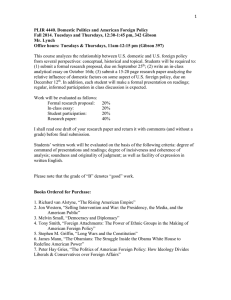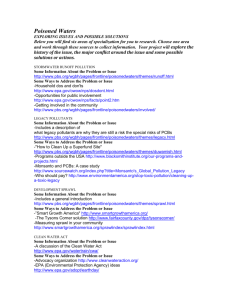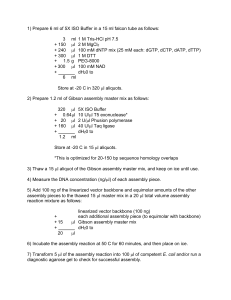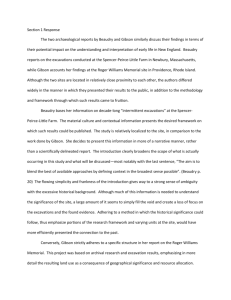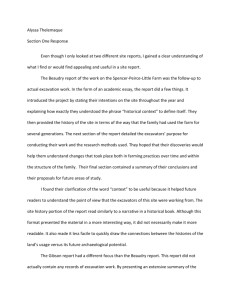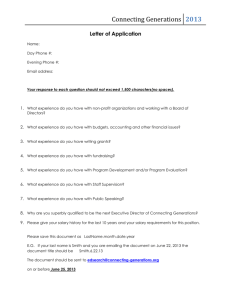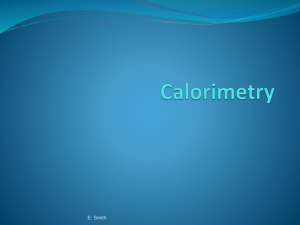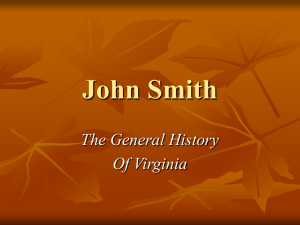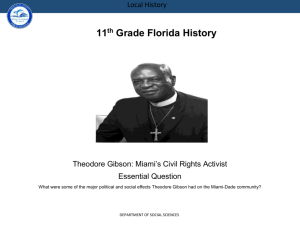plir4440.f2015.syllabus
advertisement
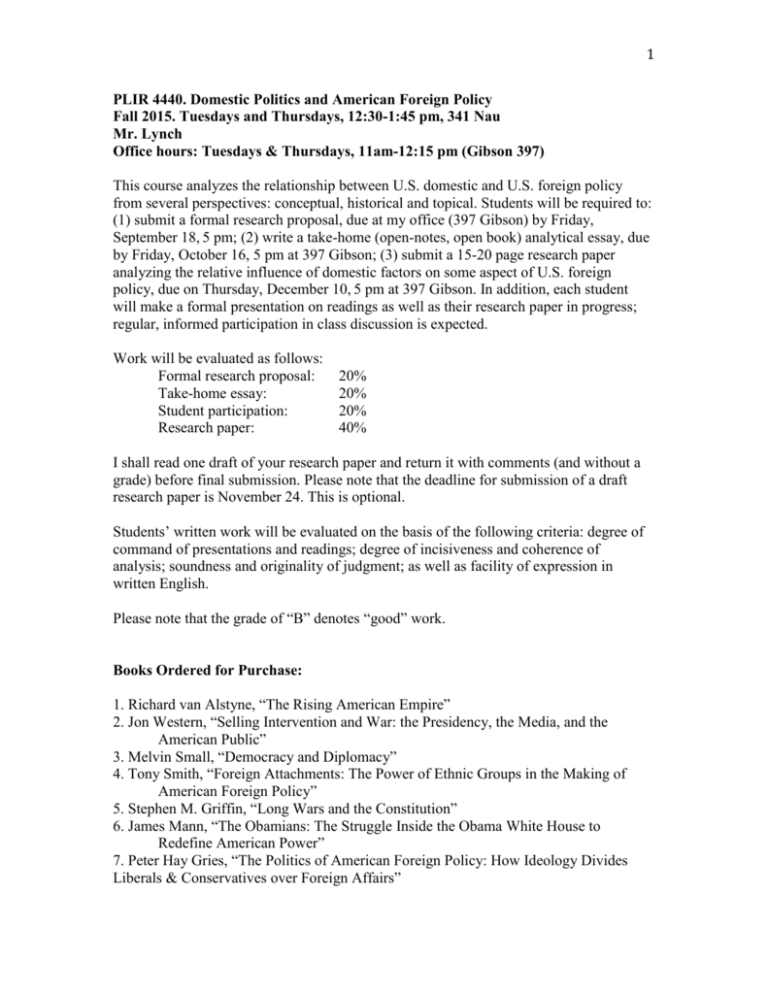
1 PLIR 4440. Domestic Politics and American Foreign Policy Fall 2015. Tuesdays and Thursdays, 12:30-1:45 pm, 341 Nau Mr. Lynch Office hours: Tuesdays & Thursdays, 11am-12:15 pm (Gibson 397) This course analyzes the relationship between U.S. domestic and U.S. foreign policy from several perspectives: conceptual, historical and topical. Students will be required to: (1) submit a formal research proposal, due at my office (397 Gibson) by Friday, September 18, 5 pm; (2) write a take-home (open-notes, open book) analytical essay, due by Friday, October 16, 5 pm at 397 Gibson; (3) submit a 15-20 page research paper analyzing the relative influence of domestic factors on some aspect of U.S. foreign policy, due on Thursday, December 10, 5 pm at 397 Gibson. In addition, each student will make a formal presentation on readings as well as their research paper in progress; regular, informed participation in class discussion is expected. Work will be evaluated as follows: Formal research proposal: Take-home essay: Student participation: Research paper: 20% 20% 20% 40% I shall read one draft of your research paper and return it with comments (and without a grade) before final submission. Please note that the deadline for submission of a draft research paper is November 24. This is optional. Students’ written work will be evaluated on the basis of the following criteria: degree of command of presentations and readings; degree of incisiveness and coherence of analysis; soundness and originality of judgment; as well as facility of expression in written English. Please note that the grade of “B” denotes “good” work. Books Ordered for Purchase: 1. Richard van Alstyne, “The Rising American Empire” 2. Jon Western, “Selling Intervention and War: the Presidency, the Media, and the American Public” 3. Melvin Small, “Democracy and Diplomacy” 4. Tony Smith, “Foreign Attachments: The Power of Ethnic Groups in the Making of American Foreign Policy” 5. Stephen M. Griffin, “Long Wars and the Constitution” 6. James Mann, “The Obamians: The Struggle Inside the Obama White House to Redefine American Power” 7. Peter Hay Gries, “The Politics of American Foreign Policy: How Ideology Divides Liberals & Conservatives over Foreign Affairs” 2 All other readings are available on Collab, indicated by “(C)”. Supreme Court cases may be found at: www.supremejustia.com. Just type in the name of the given case (e.g., Korematsu v. the United States). Schedule of Classes 8/25. Introduction. Why this Course? Procedures. 8/27. Lecture: Historical Patterns. Van Alstyne, 1-99; Small, 1-15; Hunt, ch.2, “Visions of National Greatness” (C). 9/1 & 9/3. The Constitutional Framework. Yoo, “Prerogative: the 18th Century Anglo-American Constitution and Foreign Affairs” (C); Warburg, “Conflict and Consensus” (C); Stevenson, “The Neutrality Declaration of 1793” (C); Walton, “The Early Years” (C); Henkin, “The Congress” (C); Corwin, “The National Executive Power” (C); Griffin, 11-59. Supreme Court Cases: Bas v. Tingy (1800), concerning undeclared war; US v CurtissWright (1936), asserting the partial extra-constitutionality of the national foreign affairs power; Missouri v. Holland (1920), confirming no role for the states in foreign policy, and Goldwater v. Carter (1979), affirming presidential discretion on treaty termination. Excerpts from decisions may be found in Smith, The Constitution and American Foreign Policy, pp. 6-11, 89-90, 157-160 (C). 9/8 & 9/10. The War Power. Griffin, 59-193; The Tonkin Gulf Resolution (1964) and The War Powers Resolution (1973), in Smith, 254-255, 257-260 (C). Supreme Court Cases: Youngstown Tube and Sheet v. Sawyer (1952), affirming limits on President’s invocation of the war power; New York Times v. the United States (1971), denying prior restraint by the government on publication in absence of demonstrable danger. Excerpts in Smith, pp. 197-206 (C). 9/15 & 9/17. National Security and Individual Rights. Griffin, 194-275. Supreme Court Cases: Schenk v. US (1919), concerning restrictions on speech during wartime; Korematsu v. US (1944), concerning mass internment without due process during wartime; U.S. V. O’Brien (1968), denying that conscientious objection is a basic constitutional right; Hamdi v. Rumsfeld (2004) & Padilla v. Hanft (2006), concerning 3 habeas corpus and due process in the context of the war on terror. Excerpts from Korematsu in Smith, pp. 189-192 (C). ***Research proposals are due at my office (397 Gibson) by 5 pm, Friday, September 18. 9/22 & 9/24. Public Opinion. Gries, 1-29, 33-134, 235-262; Western, 1-25, 220-234. 9/29 & 10/1. Interest Groups & the Electoral Cycle. Smith, 47-129; Gries, 183-208; (C); Wiarda, “American Foreign Policy: Actors and Processes” (C); Quandt, “The Electoral Cycle” (C). !0/6. Reading Day. No Class. 10/8. Institutional Constraints on Foreign Policy Capacity: the late 19th Century. Zakaria, “From Wealth to Power” (Collab, hereafter, “C”). 10/13. The Challenge of Globalism: Wilson and FDR. Small, 26-79; John Milton Cooper, “Breaking the Heart of the World,” at: http://www.pbs.org/wgbh/amex/wilson/filmmore/fr_cooper.html; Cole, “Roosevelt and the Isolationists,” pts 1-3 (C); Holsti, “The 1940 Destroyer Deal with Britain,” (C); review Griffin, 52-71; see text of the Ludlow Amendment (1937) in Smith, p.245. 10/15. McCarthyism and American Foreign Policy. Small, 80-140; Gries, 209-234; Stone, “The Cold War: the Scaremongers” (C); Snyder, ch. 7, “America’s Cold War Consensus,” 255-322 (C). ***Take-home essay is due by 5 p.m., Friday, October 16, at my office (397 Gibson). 10/20. The Cuban Missile Crisis & Models of Foreign-Policy Decision Making. Allison & Zelikow, “The Essence of Decision,” 77-129 (C); Brussel, “The Cuban Missile Crisis” (C); Taubman, “Khrushchev: the Man and his Era” (ch. 19, “1962: the Cuban Cure All”) (C). 4 10/22 & 10/27. Vietnam: 1954, 1965. Small, 141-164; Western, 26-61; Neustadt, ch. 13, “Presidential Power and the Modern Presidents” (C); Gelb and Betts, “The Irony of Vietnam: the System Worked,” pp. 96-143 (C). 10/29. Post-Vietnam, Post-Cold War Effects: the U.S. & China. Gries, 235-262; E.A. Hyer, “The US Response to the Tianamen Massacre: Congressional Values and Executive Interests” (C); Auger, (Auger-ic.168.pdf—“Human Rights & Trade: the Clinton Administration and China)” (C); Swaine & Tuosheng, “The 2001 Aircraft Incident” (C). 11/3. Unilateralism Before George W. Bush, 1994-1999. Betts, “The Political Support System for American Primacy” (C); Pitzl & Stewart, “The US Position on the Kyoto Protocol: Senate Ratification or Not?” (C); Deibel, “Death of a Treaty” (C); Ausink, “Watershed in Rwanda: the Evolution of Clinton’s Humanitarian Policy” (C); Skidmore, “Who is at the Helm? The Debate over U.S. Funding for the United Nations,” (C). 11/5 & 11/10. The Road to War in Iraq. Western, 175-219; Mann, “The Rise of the Vulcans,” 332-358 (C); Martin, “Going to the UN: George W. Bush and Iraq,” (C); “Rumsfeld’s War,” PBS Frontline video, at: http://www.pbs.org/wgbh/pages/frontline/shows/pentagon/view/; “The War Behind Closed Doors,” PBS Frontline Video, at: http://www.pbs.org/wgbh/pages/frontline/shows/iraq/view/. 11/12. The Obama Departure? Mann, The Obamians. The Struggle Inside the Obama White House to Redefine American Power, chapters 5, 11-20; Rothkopf, ch.8, “Olympic Games” (C); Rothkopf, ch.9, “Leading from Behind” (C). 11/17. Student presentations on their research papers (4). 11/19. Student presentations on their research papers (4). 11/24. Student presentations on their research papers (4). ***November 24, class time, is deadline to submit draft research paper for “free” evaluation. 5 11/26. Thanksgiving. No class. 12/1. Student presentations on their research papers (4). 12/3. Student presentations on their research papers (4). 12/8.To be determined. Final research paper is due on Thursday, December 10, 5 pm, at my office (397 Gibson).
